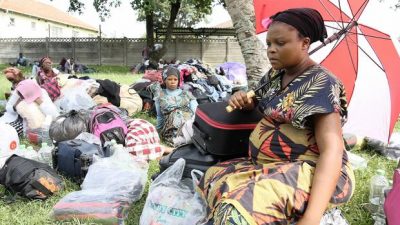Don’t be Surprised by the Latest Outbreak of Xenophobic Violence in South Africa

Rioters destroyed several migrant-owned businesses in the South African port city of Durban last weekend and drove some of them from their homes in an outbreak of xenophobic violence that many feared might portend a return to the infamous events of 2008. President Ramaphosa railed against the rioters and demanded that they be brought to justice, pointing out how their heinous acts endanger the development of all of Africa and are absolutely unacceptable in his “rainbow nation”. For those in the country and the broader Southern African region, what happened wasn’t necessarily anything new but was just the latest manifestation of long-simmering tensions that finally bubbled over into the public sphere once again.
South Africa is one of the continent’s best-performing economies and a favored destination of migrants from all over Africa who are drawn to its comparatively stable currency and many job opportunities, though the latter sometimes come at what some locals regard as their expense. Furthermore, there are already preexisting tribal issues within South African society as it is, so adding the large-scale influx of migrants to this already tenuous mix was bound to cause problems sooner than later, though explaining these dangerous dynamics by no means excuses them. All of this is just to help the non-African audience better understand why this is happening since many folks might have been surprised by these developments.
At the risk of provoking a “politically incorrect” controversy, many non-Africans who only have a casual interest in following African events might either be deluded by ignorance or racist misperceptions into wrongly assuming that “all Africans are the same” and overlooking the continent’s rich diversity. The reality is that Africa is home to many different people who sometimes look very different, speak different languages, practice different cultures, and follow different religions, with many of this unfortunately being lost on many non-AfricanS who can’t look beyond the fact that most of Africa’s people are of a darker-skinned complexion. Accepting Africa’s rich diversity, it’s easier to understand how xenophobic violence could suddenly explode in South Africa.
*
Note to readers: please click the share buttons below. Forward this article to your email lists. Crosspost on your blog site, internet forums. etc.
Andrew Korybko is an American Moscow-based political analyst specializing in the relationship between the US strategy in Afro-Eurasia, China’s One Belt One Road global vision of New Silk Road connectivity, and Hybrid Warfare. He is a frequent contributor to Global Research.
Featured image: POLICE moved 50 people, including babies, displaced in a xenophobic attack at Burnwood informal settlement in Durban to Sherwood Hall. Leon Lestrade African News Agency (ANA)

